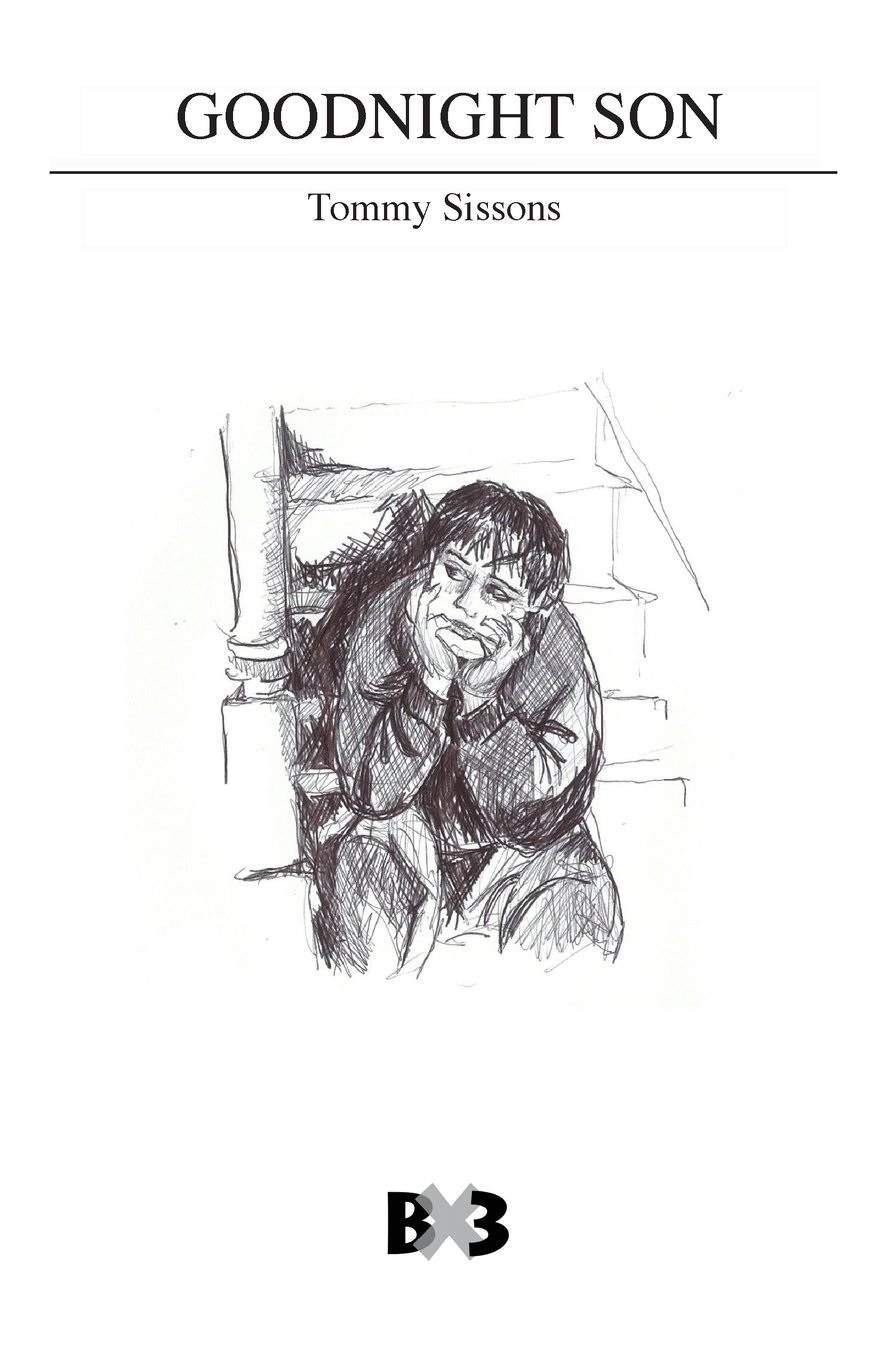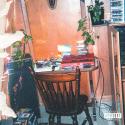Tommy Sissons is a 21-year-old poet, originally from Brighton, now based in London. He has won a number of poetry slam championships, and has performed across the UK at venues ranging from the Boomtown Festival to the Royal Albert Hall. His debut collection Goodnight Son was published last year. Sissons has taught classes and workshops as far afield as Germany and as close to home as the Victoria & Albert Museum. He was a regular presenter of Channel 4 music programme Four to the Floor and was commissioned by the BBC to write a Remembrance Day poem in 2015. He will be appearing at the Brighton Festival in May
THOMAS H GREEN: You’ve been crowned a slam poetry champion – given poetry isn’t a sport, how seriously do people take these titles?
TOMMY SISSONS: I don't take slams too seriously but they certainly help in building a career. I got into poetry originally through the Hammer & Tongs Slam at the Komedia in Brighton. I was regional champion in 2012 and 2013, then went onto the national finals. I was the Slambassadors UK champion in 2014 and took second place at the Roundhouse Poetry Slam last year. It builds up your name. You can do loads of open mics, getting people to know who you are, but once you’ve built a reputation of being able to win slams people start being really interested in booking you.
 What are you up to at the moment, generally?
What are you up to at the moment, generally?
I’m doing a BA in English at Goldsmiths in London. I’m in my third year so the pressure’s on a little bit. It’s good, though, enjoyable. Poetry-wise, I’m working on a second collection at the moment. I’ve also recently made a documentary about my first book, Goodnight Son (book cover, pictured right). That’ll be out in the next month or two. And I do more and more gigs. I’m part of a collective called Split the Atom and we put on regular nights in London. I live in London for uni but I was raised in Brighton. Brighton’s a really good hub for poetry, a really good community, everyone knows each other, collaborates and supports each other, like a family. There’s a unity there.
I’ve really enjoyed going to the Poets vs MCs events there.
Yeah, they're fantastic.
Although I wonder if these days there’s much difference between MCs and poets?
That depends what types of poetry. If it’s spoken word there’s lots of rhythmical poetry that can’t be easily set apart from MC-ing. There are blurred lines, but at the same time poetry’s a lot freer because you can express yourself without being stuck to a rhythm, which is what I like.
What do you think of grime and its current high profile?
I love grime, yeah. A new generation in young poets, now in their late teens through to mid-20s, all brought up with that sort of music culture. It’s very much the voice of a lot of young people living in deprived areas of the UK at the moment. It’s distinct and new. A lot of people have compared it to punk music and the DIY culture behind it, which is fairly accurate. Obviously it’s been around for 14-15 years now but it’s just come back and is having its second golden age. A lot of poets are influenced by grime and the culture round it and it shows in their work. I’m somewhat influenced by it but particularly poets in London use the same sort of lingo as grime. There’s a crossover; you get grime artists turning up to watch poetry nights and poets going to grime nights, which is fantastic.
Tell us what you’re doing for the Brighton Festival?
I’m doing a show called In Their Shoes which is put together by Apples and Snakes, one of the UK’s most renowned poetry organisations. They help out a lot of poets, funding projects and publishing.
Did you find it hard to write a Remembrance Day poem for the BBC?
I’ve always been interested in war and history, and I was willing to delve into it, learn more. I went to the army barracks in Knightsbridge and met up with a soldier there who told me a bit about his time serving Afghanistan, so I incorporated all the stuff he told me, turned it into a poem. The one I did for the BBC was more about contemporary warfare. I did a different one for Apples and Snakes which was all about World War One for the Centenary so I had to go and do my research in the Imperial War Museum.
Poetry is so broad you can write about anything as long as there’s substance
Are you expected, as a poet in the 21st Century, to have a political perspective or could you just be like a Romantic poet, eulogising flowers and wotnot?
Poetry is so broad you can write about anything as long as there’s substance. You’ve got comedy poets who write about very trivial things but they do it in a funny way. A lot of my work is influenced by politics or deprived environments that have been created as a result of bad politics, so I suppose in my work people somewhat expect it. I talk a lot about youth culture as well, and masculinity, and all sorts of stuff. I think now is a time in spoken word when it’s good to have political awareness. With Romantic poets I can appreciate their craft but I don’t think it would be as well-received in a spoken word environment. A lot of spoken word is very politically charged.
What book are you reading at the moment?
I’m reading three – The Jungle by Upton Sinclair, a biography of Allen Ginsberg, and The Vintage Book of Contemporary American Poetry.
Is that the Barry Miles Ginsberg biog?
Yes, Ginsberg is definitely an inspiration, one of my favourite poets. I’m writing my dissertation on “Howl” at the moment.
Do you remember Dan le Sac vs Scoobius Pip’s ‘Thou Shalt Always Kill”? It came out almost exactly ten years ago.
I was 11. I didn’t know who they were, then I got an album when I was 15-16 and listened to a lot of their music. I’ve worked with Scroobius Pip since then. He books the poets for The Bestival. I’ve performed at his Lizard Lounge there. He’s a great guy. I’ve certainly drawn inspiration from them. They cross over the boundary with spoken word and electronic music.
Unbelievably, especially given how the charts are now, “Thou Shalt Always Kill” was a Top 30 hit. Has there been a Top 30 poem since?
I’m not sure, maybe one of Kate Tempest’s? Or George the Poet? [later research reveals Kate Tempest has had a Top 30 album but neither have had a hit single/song]
Your “#Poem” says, “Video killed radio, DVD killed video, Netflix killed that, and now there’s illegal streaming.” Do you think these media developments help or hinder a contemporary poet?
That poem is quite satirical. It takes the piss out of a lot of stuff but, if anything, technology has helped expand the reach of contemporary poets. Poetry was originally oral, then it was turned into a thing on the page. Through the last many centuries it was seen as an art form of the elite, then when it came to mid-20th century the spoken word movement as we now recognise it began. It was all about bringing spoken word back to ordinary people, and talking in a voice normal people could understand. So you wouldn’t have to buy a book to appreciate poetry, you could go down to your local community centre or street corner and catch a poet talking about stuff that affects real people, not quite as high-flown as all the page poetry of the 17th, 18th and 19th Centuries. Having live technology come in, we can film and share these performances and anyone can share and watch them. I think it’s massively helped expand poetry’s reach, helped people who never thought they’d like poetry to see a different side to it, realising there’s something there they can relate to.
Watch Tommy Sissons perform "Poets Are Endangered" at Sofar London in 2016















Add comment